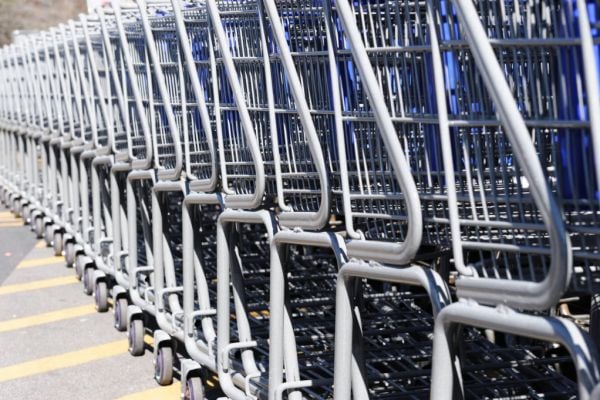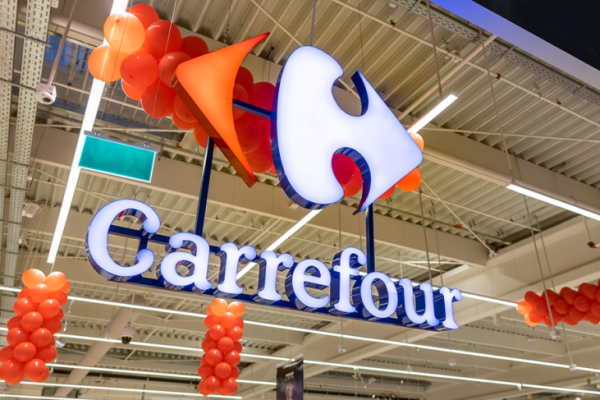UK retailer Morrisons has posted a 5.7% increase in like-for-like sales, excluding fuel, in its first quarter, with the group reporting 'highly volatile' trading patterns during the period.
Here's how leading industry analysts viewed its performance.
Thomas Brereton, GlobalData
"Morrisons’ results tell a mostly familiar story in line with the other major supermarkets; food sales rose quickly to peak in late March as UK case numbers grew and stockpiling began and fell in April due to a tough Easter comparative.
"But the results also shed light on most recent activity, with retail contribution to l-f-l sales rising to 9.6% for the final two week of the period (27th April – 10th May), suggesting that volatility remains high and that a return to more normal grocery conditions remains far off.
"As COVID-19 continues to upend the food industry, Morrisons has adapted to new shopping trends in the UK in line with competitors, quickly implementing now common supermarket processes (such as limiting store occupancy and raising contactless payment limit).
"Morrisons stands out for its more empathetic initiatives, such as offering a minimum 6% annual bonus for all employees and in-store discounts for farmer suppliers and NHS workers – enterprises that will serve it well in the long-term as supermarkets continue to play a pivotal role in the UK’s response to the crisis."
Russ Mould, AJ Bell
“It says something when a business experiencing a surge in demand continues to feels it cannot fulfil a desire to pay a special dividend, such as is the case with Morrisons. It deferred the decision in March and has now done so again.
“The supermarket group is a like an iceberg – you can get a sense of Morrisons’ strong sales mounting up just by seeing the big queues for its stores and also how its online delivery slots are quickly snapped up. But below the water level there are several under-appreciated factors acting as a drag on the company.
“Morrisons is holding on to its spare cash for the time being as there are many demands for this money in the business. Its tremendous efforts to help meet customer demand are incurring extra costs and profits are also suffering from a sharp drop in fuel sales.
“This means both Morrisons and Sainsbury’s are now on the growing list of companies deferring decisions on the dividend, something that may surprise people given supermarkets are one of the few industry sectors to have been consistently operating throughout the pandemic."
Bruno Monteyne, Bernstein Research
"Retail contribution to LfL was +5.1% in Q1 and +9.6% in the final three weeks of the period. Wholesale contribution to LfL was +0.6% in Q1 and +1.2% in the final three weeks of the period.
"This is somewhat weaker than we had anticipated, with commentary implying that the initial usual stockpiling trend boosted sales before lockdown, but we saw a significantly weaker period around Easter (which we probably didn’t anticipate well enough) which reduced the uplift, before a resumption of c. +10% LfL sales in the last few weeks of the quarter. That latter run-rate is in line with what we would expect the industry to be at, given the shift from out-of-home food to at-home food.
"Morrisons continue to state that the FY outlook is uncertain, and there is limited quantitative guidance given. However, their best estimate is currently that FY20 operational costs from COVID-19 will be broadly offset by business rates savings (i.e. £228m from the rates suspension in April to FY end in February) with H1 worse off and H2 better."
Clive Black, Shore Capital
"Morrisons has emerged from a tumultuous Q1 in good shape. Learning has been rapid, the Group has been agile in the face of volatility but also exceptionally innovative and purposeful, so meeting the demands of a nation coming to terms with coronavirus.
"Indeed, we believe that the wholehearted effort of Morrisons is resonating well with all stakeholders and whilst trade is boosted by channel shift there could be ongoing benefits to the business in what are likely to be tough economic periods ahead.
"Group retail like-for-like sales (LFL) rose by 5.1%, exiting at 9.6%, which is encouraging. Significant costs have been incurred, which broadly absorb business rate relief. Whilst uncertainty persists, we retain our FY2021 CPTP estimates, noting the Group's very strong liquidity and solvency. Morrisons can look to the future with cautious optimism."
Nigel Frith, www.asktraders.com
"Morrisons followed in the footsteps of its rivals reporting a jump in sales, reflecting the increase in demand from pre- lockdown stock piling and a strong uplift in e-commerce sales.
Morrisons more than doubling the number of weekly home deliveries is a particularly impressive result. Morrison's online offering and e-commerce department was significantly smaller than its rivals. Recent moves, such as the tie-up with Deliveroo is reaping rewards and is putting Morrison in a stronger position for future online sales growth.
Even though the UK lockdown measures are easing, social distancing measures will mean that online shopping is likely to remain popular going forwards.
The stock has jumped over 1% in early trade, outperforming the broader market."
© 2020 European Supermarket Magazine – your source for the latest retail news. Article by Stephen Wynne-Jones. Click subscribe to sign up to ESM: The European Supermarket Magazine.














